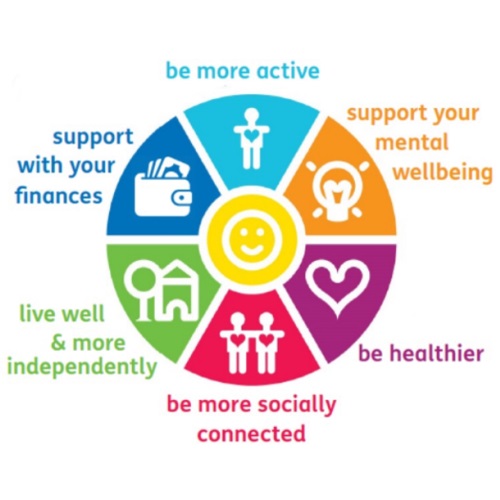
Transition Stroud Newsletter Editor Josephine Murray (JM) talks to Helena Petre, a social prescriber at Beeches Green Surgery.
See below for three things you can do today!
JM: What is social prescribing?
HP: Social prescribing is a person-centred non-medical approach to some of the issues that people present with at the GP’s surgery: loneliness, social isolation debt, homelessness, eating disorders, domestic abuse, mental health troubles; neurodiversity; drug and alcohol problems; chronic pain; difficulties around pregnancy or miscarriage; access to benefits advice, refugee status, to name but a few.
JM: What sort of activities does it involve?
HP: First of all, we listen, and listen. For many clients, it’s a chance to be heard at last.
As social prescribing is person-centred, it can involve whatever the client needs, within reason. In the last week, I’ve connected someone with a digital enabler to help them to learn how to use email on their phone; I’ve shown someone how to catch the bus to Cheltenham; I’ve connected people with Honour thy Woman, a group that helps women who have experienced domestic abuse, I’ve made a few referrals to CALMHS (Community advice, links and mental health, provided by the Independence Trust). I’ve also spent time looking for art groups in the Stroud area, and helping someone to start one. In the past, I’ve also attended a Samba Drumming class with a client. I had to take part! There is no one-size-fits-all approach to Social Prescribing. Every client is different.
JM: How does someone get referred?
HP: I work as part of a team for Stroud Cotswold Primary Care Network , so I get my referrals from medical personnel. There are also community-based Social Prescribers in the Stroud area. Generally, GPs, nurses, and anyone who works at the five surgeries we cover (Beeches Green, Rowcroft, Frithwood, Minchinhampton and Painswick) can refer a person to us by filling in a simple form, which is then emailed to the team.If you feel social prescribing would work for you, ask your nurse or GP to refer you. They only need a few details. As soon as we can, we’ll ring people who are referred to us.
JM: How does social prescribing work?
HP: A person is referred, as above, and then we either arrange a home visit, or a series of phone calls, or a meeting in one of the surgeries, or a café, and then we keep on following up, usually by phone, text or email, until most of the questions they came with have been answered. This can take months. We very rarely make just one call or visit. Sometimes the same patient gets re-referred to us, so then it’s time to look at a different approach.
JM: What sort of results do you get?
HP: Well, a colleague helped someone get a grant for a septic tank. That was a happy day! I get positive feedback from several clients, when they get their Blue Badge or find the right art group or physiotherapist, or get attendance allowance, or find a pregnancy group to support them. Most of the results aren’t quantifiable by traditional methods of auditing. I would like to say that we aim to improve people’s overall happiness, confidence and wellbeing, and that sometimes we succeed. One of my clients has just got a council flat after nine months, and a women’s charity is helping her get some furniture. I can’t take the credit for that, though: we are link workers.
JM: How and when did you start?
HP: I started in my role 18 months ago. A colleague and friend told me that there was a vacancy coming up in the team, and that she thought I’d be a good fit. She reminded me of all the community-ish things I’d done in the five years I’d known her, and encouraged me to apply. I started a few months later.
JM: What else do you do for work, or voluntary work?
HP: I teach English voluntarily to an Afghani refugee, and he cooks me lunch afterwards. This is more to do with my love of other cultures, and language. We’ve taught each other a lot. I also help organise trips and social events for a group of people in Stonehouse and Stroud, which helps with combatting loneliness and the void left by bereavement.
JM: What do you do in your spare time?
HP: I go to yoga and Buddhist meditation, and the Stroud film society’s screenings, as well as a few gigs at the Stroud Sub Rooms. I try to get out for a proper walk at least once a week.
JM: Whereabouts do you live and what do you like about that area?
HP: I live near Stroud cemetery/ the Heavens AONB, and I like the immediate access to the countryside, and the views over the misty hills on an autumn morning. I also like being able to walk to town.
| Three Things You Can Do Today Looking after mental health is important. 1) If you work, remember to take breaks. 2) Everyone, working or not, should try to cook and eat regularly even if you don’t feel like it, or don’t want to cook for one. A little is better than nothing. 3) If you want to get out more, think about volunteering. Currently, there’s a shortage of volunteers. |
Find out about more local Stroud Transitioneers
If you would like to share your sustainable living story, please contact Josephine on news@transitionstroud.org
